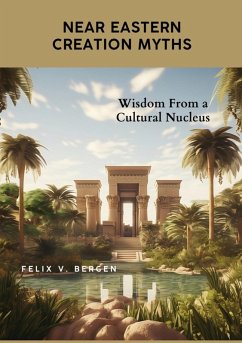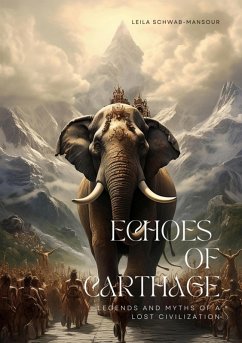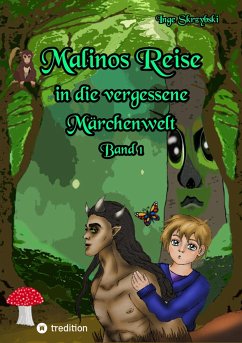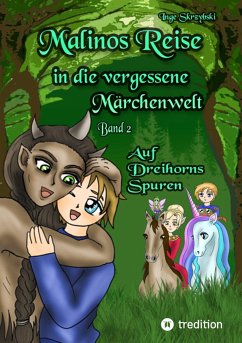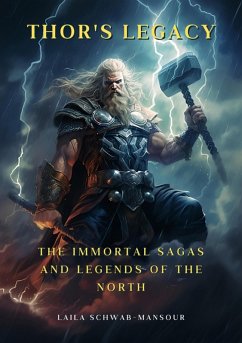
The Gods Do Not Play Dice (eBook, ePUB)
Dialogues through time
Illustrator: G-Jl
Versandkostenfrei!
Sofort per Download lieferbar
4,99 €
inkl. MwSt.
Weitere Ausgaben:

PAYBACK Punkte
0 °P sammeln!
Do the old myths still have something to tell us? What experiences could the figures from the Trojan War convey to us today? The author wanted to find out. He set out to talk to them. They answered his questions. He was able to win over prominent interlocutors such as Cassandra, Penthesilea and Odysseus. You can look forward to the answers and immerse yourself in the magical world of Greek mythology. This book "The Gods do not play dice" takes you into fictional dialogs with figures and creatures who are willing to share their stories and their lives with you. Homer's "Illiad" is considered hu...
Do the old myths still have something to tell us? What experiences could the figures from the Trojan War convey to us today? The author wanted to find out. He set out to talk to them. They answered his questions. He was able to win over prominent interlocutors such as Cassandra, Penthesilea and Odysseus. You can look forward to the answers and immerse yourself in the magical world of Greek mythology. This book "The Gods do not play dice" takes you into fictional dialogs with figures and creatures who are willing to share their stories and their lives with you. Homer's "Illiad" is considered humanity's first war report. However, he did not always clearly separate what had been handed down from poetry. My dialogues through time deal with this period through the person of Cassandra. I was sometimes surprised at how little the means and methods of war have changed to this day. "Writing is public thinking. "Look what I was thinking!" There will always be someone later who is convinced that they could have formed these sentences, these thoughts better. But then it is too late, then the order and the selection are fixed and therein lies the writer's crime. The reader accuses him of this whenever possible. Excerpt: "The gods don't play dice" - ("Kassandra") "So you learned that Menelaus would never let a spoiled boy take his wife. You had seen it and you had warned them. You had told them again and again. Beware of the Greeks, you are said to have shouted, more likely to stammer in one of these fits, even when they bring gifts. But they didn't believe you. Apollo's curse has long since worked against you. Your father punished you for these words. They were not beneficial for Troy, he had said. The truth is of little use in war. And doubts, whether justified or not, only ever benefit the enemy. You had to learn these words, war and enemy and before that, attack. That seemed to have become the most important word in Troy: "assault," or rather "cowardly assault." His question then hit you with full force, whether you wanted the victory of the Greeks and the downfall of Troy. It hit you like an ax and split your mind. How could he have thought that question? Then how could he even pronounce them? Had he denied you your love for him, for yours, at that moment? Really? Whether asked this way or another, this question silenced you forever. You never spoke out loud to others again. You never really confided in others again. Hints, fragments at best, and then immediately being silent again. Your dearest brother, Helenos, your twin, was still on your side. He saw what you saw, saw the inevitable. But he remained silent in the face of his angry father. He seemed blind, like his priests. All men who only whispered to the king what he was ready to hear. Hecuba often scolded her for this and left no doubt about Priam's decisions, which were actually hers. You had often overheard them, Kassandra, heard them talking when they were conferring together, when they were conferring in the palace. You could still move freely. After all, you were one of them. It was like that until the first time you loudly disagreed with them. You heard that they knew that your father's sister Hesione was not stolen by the Greeks, but willingly became Telamon's wife. You heard that this marriage without the king's consent was treason in your father's eyes. He could not allow a Greek to come to an agreement with a Trojan of her status without his consent. That had to be seen as an insult... ...But then he made his most fatal mistake. Your brother Paris was commissioned to bring Hesione to Troy without properly informing him. He couldn't do that with this dispatch accompanying him. So he decided, untrained in dealing with kings and politics, to kidnap Helena in return for the perceived insult. As if he could make up for one mistake with another."
Dieser Download kann aus rechtlichen Gründen nur mit Rechnungsadresse in A, B, BG, CY, CZ, D, DK, EW, E, FIN, F, GR, HR, H, IRL, I, LT, L, LR, M, NL, PL, P, R, S, SLO, SK ausgeliefert werden.








